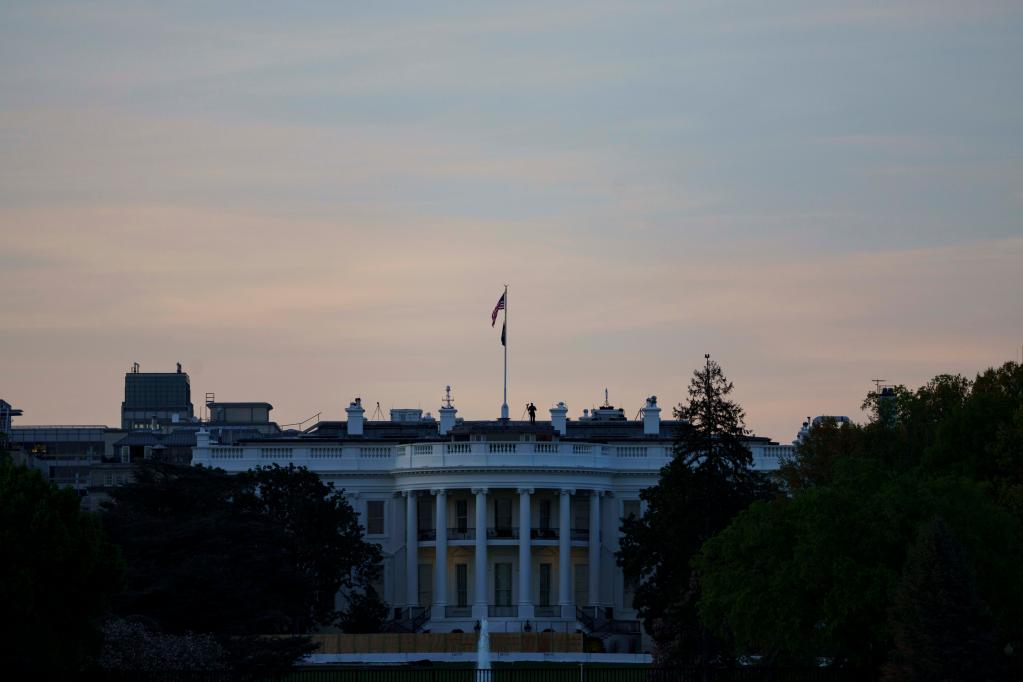Shame and disgrace of untrustworthy U.S. intelligence arms
-- The U.S. intelligence community consists of 18 civilian and military organizations within the federal executive departments, including the leading Office of the Director of National Intelligence (DNI). With an annual budget of more than 80 billion U.S. dollars, their jobs include so-called "intelligence activities necessary for the conduct of foreign relations and the protection of the national security of the United States."
-- The intelligence services are tasked with delivering sound information and educated analysis to U.S. policymakers but they are also needed politically, especially when Washington is determined to carry out interventions. History has shown U.S. intelligence agencies fanned the flame in the country's politically charged drives to initiate wars.
-- Public opinion manipulation -- During the Cold War, the CIA enlisted more than 400 American journalists in a 25-year span in a bid to manipulate the public opinion by spreading propaganda, wrote Carl Bernstein, a renowned U.S. investigative reporter, in a cover story for U.S. magazine Rolling Stone in 1977.
-- Washington's use of the controversial intelligence arms for COVID-19 origins tracing has come under question, as there is a strong consensus that the matter should be left to scientists with qualifications and expertise in certain fields, which the U.S. intelligence community clearly lacks.
WASHINGTON, Aug. 24 (Xinhua) -- "I was the CIA (Central Intelligence Agency) director. We lied, we cheated, we stole," then U.S. Secretary of State Mike Pompeo said when addressing Texas A&M University in April 2019. "We had entire training courses. It reminds you of the glory of the American experiment."
Pompeo's "confession" is only a glimpse of the gigantic U.S. intelligence system's ingloriousness, from the production of unsubstantiated intelligence that gave Washington pretexts to invade others to the engagement of assassinations, abuse of prisoners, wiretapping, and public opinion manipulation, among other things.

Photo taken on April 13, 2021 shows the White House in Washington, D.C., the United States. (Photo by Shen Ting/Xinhua)
The shameful and deplorable record, while having long since shattered the credibility of the intelligence community, has also laid bare its nature of serving at the pleasure of U.S. decision-makers, regardless of truth, facts, and human conscience, as Washington plays power politics and seeks to preserve a hegemonic position in the world.
POLITICAL INSTRUMENT
The U.S. intelligence community consists of 18 civilian and military organizations within the federal executive departments, including the leading Office of the Director of National Intelligence (DNI). With an annual budget of more than 80 billion U.S. dollars, their jobs include so-called "intelligence activities necessary for the conduct of foreign relations and the protection of the national security of the United States."
The intelligence services are tasked with delivering sound information and educated analysis to U.S. policymakers but they are also needed politically, especially when Washington is determined to carry out interventions. History has shown U.S. intelligence agencies fanned the flame in the country's politically charged drives to initiate wars.
Robert Hanyok, a former historian with the National Security Agency (NSA), wrote in an internal publication that was declassified in 2005 that the military intelligence agency's officers "deliberately skewed" the evidence passed on to Washington to falsely suggest that Vietnamese ships had attacked American destroyers on Aug. 4, 1964, in the "Gulf of Tonkin" incident that led to the United States engaging more directly in the Vietnam War.
Based on the assertion that such an attack had occurred, then U.S. President Lyndon Johnson ordered airstrikes on the Southeast Asian country and Congress passed a broad resolution authorizing military action, according to an article published by The New York Times in 2005.
In addition, Philip Liechty, a former CIA officer, revealed to The Washington Post in 1982 that the Johnson administration and the spy agency fabricated "evidence" in 1965 to help prove that the war in Vietnam was being fueled by outside arms and to set the stage for U.S. involvement.
The United States also notoriously used what it called "facts and conclusions based on solid evidence" that Iraq is making weapons of mass destruction to invade the Western Asian country 18 years ago as part of the West's counterterrorism campaign. However, no such weapons had ever been found. Yet years of war left hundreds of thousands of Iraqis dead and a broken country, along with more than 4,400 casualties among U.S. troops.
Colin Powell, who presented as secretary of state the U.S. case against Iraq to the United Nations Security Council in early 2003, acknowledged several years later that the invasion was "badly flawed." "If we had known the intelligence was wrong, we would not have gone into Iraq," Powell told NBC News during an interview in 2015. "But the intelligence community, all 16 agencies, assured us that it was right."
"This was, in short, a war the White House wanted" and that the U.S. intelligence community was "under intense pressure to justify the war," wrote New York Times opinion columnist Paul Krugman in 2015. "Whatever the precise motives, the result was a very dark chapter in American history. Once again: We were lied into war."
UNBOUNDED TACTICS
U.S. intelligence agencies have gone to great lengths to fulfill purposes with no regard to laws and ethics by deploying unbounded tactics.
Prisoner abuse -- The U.S. Senate Intelligence Committee released in 2014 an explosive report on the CIA's detention and interrogation program, detailing its personnel's use of "enhanced interrogation techniques," including waterboarding, stress positions, sleep deprivation, and noise exposure, on select detainees captured after the Sept. 11 attacks in 2001 that led to the "War on Terror," and how the spy agency tried to cover it up and obstruct oversight.
Then chair of the panel, Senator Dianne Feinstein from California, called the CIA's actions "a stain" on the country's history. "This program was morally, legally, and administrative misguided," she said on the Senate floor in 2014. "The CIA program was far more brutal than people were led to believe."
Wiretapping -- A European media investigation released in May this year revealed the NSA had collaborated with Denmark's secret service to spy on high-ranking officials from Germany, Sweden, Norway, and France.
The report once again put under the spotlight spying activities of the United States, years after intelligence contractor and whistleblower Edward Snowden leaked highly classified information from the NSA, exposing the agency's surveillance programs both at home and abroad, including PRISM, under which agents can access users' data stored in major social media and tech companies.
Assassination -- The CIA had attempted to assassinate several foreign leaders and aided assassination plots in some countries, a report by the U.S. Senate in 1975 found.
Following the release of the report, then U.S. President Gerald Ford signed an executive order in 1976 banning the federal government from engaging or conspiring in "political assassination." And yet Washington "never totally abandoned the strategy, simply changing the terminology from assassination to targeted killings, from aerial bombing of presidents to drone attacks on alleged terrorist leaders," said a 2017 article in The Guardian.
Public opinion manipulation -- During the Cold War, the CIA enlisted more than 400 American journalists in a 25-year span in a bid to manipulate the public opinion by spreading propaganda, wrote Carl Bernstein, a renowned U.S. investigative reporter, in a cover story for U.S. magazine Rolling Stone in 1977.
"The tactic was straightforward: false news reports or propaganda would be provided by CIA writers to both knowing and unknowing reporters who would simply repeat the falsehoods over and over again," according to political blogger Lauren Von Bernuth in a 2018 post on the CIA project known as Operation Mockingbird, adding that its primary function "was to cover up covert and often illegal foreign operations."
TRUST CRISIS
The White House has been roundly criticized after a chaotic withdrawal of U.S. troops from Afghanistan earlier this month, as many pointed fingers at the intelligence community over the debacle. Richard Haass, president of U.S. think tank Council on Foreign Relations, tweeted that he thinks "this looks to be both a major intelligence &policy failure with tragic consequences."

Photo taken on July 2, 2021 shows the Bagram Airfield after all U.S. and NATO forces evacuated in Parwan province, eastern Afghanistan. (Photo by Sayed Mominzadah/Xinhua)
This is not the first time U.S. intelligence agencies have been mired in a political firestorm. When Donald Trump was in office, the relationship between the White House and the intelligence community had been tense because of their disagreements over a number of national security matters.
Trump was particularly unpleasant with a 2017 DNI report concluding that Russia interfered with the 2016 U.S. presidential election in favor of his victory, arguing that there was a "deep state" within the federal government seeking to undermine the legitimacy of his election. Critics responded by raising concerns that the rhetoric was mounting political pressure on the intelligence community while eroding its independence and public image. Russia has denied the allegations of election interference.
In April 2020, Trump fired Michael Atkinson, inspector general of the U.S. intelligence community, who first notified Congress of a whistleblower complaint over the White House's interaction with Ukraine that ultimately led to the president's impeachment by the House of Representatives earlier that year. The Republican moved to install loyalists to the DNI in the final year of his presidency, triggering criticism that intelligence agencies would be further politicized.
In an article published in U.S. magazine Foreign Affairs late 2020 when she was still president and CEO of U.S. think tank Wilson Center, Jane Harman wrote that Joe Biden, who succeeded Trump early this year, is inheriting "a broken intelligence community."
"U.S. spy agencies are mired in the worst crisis of trust and accountability the nation has seen since the Iraq war," Harman pointed out, stressing that the intelligence process has been politicized "in ways large and small, undermining the integrity of national security decision-making and the public's faith in it."
Biden asked in May the U.S. intelligence community to redouble their efforts to investigate the origins of the COVID-19 pandemic and come up with a report in 90 days. Intelligence officials have reportedly drafted a classified report that is in the preliminary review process.
Washington's use of the controversial intelligence arms for COVID-19 origins tracing has come under question, as there is a strong consensus that the matter should be left to scientists with qualifications and expertise in certain fields, which the U.S. intelligence community clearly lacks.

Refrigerated trailers are seen at a temporary morgue in Brooklyn, New York, the United States, June 15, 2021. (Xinhua/Wang Ying)
"We don't need an intelligence report, we need an outbreak investigation -- and that's a very different skill set, and a very different approach," Peter Hotez, co-director of the Center for Vaccine Development at Texas Children's Hospital and dean of the National School of Tropical Medicine at Baylor College of Medicine, told Rolling Stone in June this year.
His remarks were echoed by Matthew Kavanagh, director of the Global Health Policy &Politics Initiative at Georgetown University, who said that if the aim of Biden's report was to find a scientific explanation of the origins of COVID-19, he would have tasked the health agencies with it, instead of the U.S. intelligence community.
"This tells us that this is a political and an intelligence story: not a story mostly about science," Kavanagh continued. "And so we should understand the picture in that sense, and not be naive about it. We're in a place where politics is driving people's scientific understanding in a dangerous way."
Photos
 Dance show saluting traditional culture of the Song Dynasty makes its debut
Dance show saluting traditional culture of the Song Dynasty makes its debut Village in SW China’s Yunnan embraces prosperity through agricultural tourism
Village in SW China’s Yunnan embraces prosperity through agricultural tourism Eighth birthday for pair of giant pandas celebrated in Haikou, Hainan province
Eighth birthday for pair of giant pandas celebrated in Haikou, Hainan province Olympic gold medalists portrayed in Shanxi artist’s polymer clay sculptures
Olympic gold medalists portrayed in Shanxi artist’s polymer clay sculptures
Related Stories
- U.S. House Democrats break stalemate to advance bipartisan infrastructure bill
- Biden keeps Aug. 31 deadline to complete Afghan evacuation
- U.S. House passes voting rights legislation that has little chance of clearing Senate
- The seven sins of the alliance system of the United States (part 7)
- The seven sins of the alliance system of the United States (part 6)
Copyright © 2021 People's Daily Online. All Rights Reserved.






